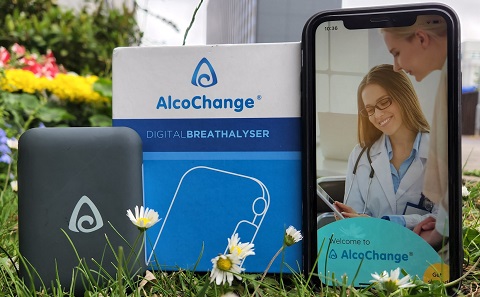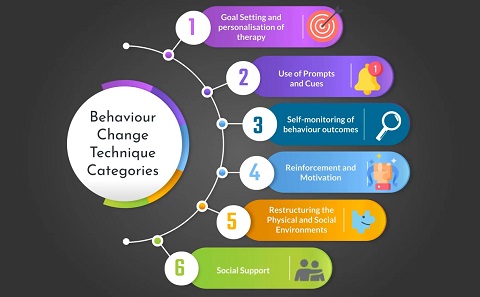New smartphone app aims to help people with liver disease cut their drinking

A new clinical trial will test whether a smartphone app can help people with alcohol-related liver disease (ArLD) to cut down their alcohol use, by providing 24/7 support and motivation.
There are currently no effective drug treatments for ArLD and alcohol-related harm costs the NHS more than £3.5 billion each year. Rising numbers of patients means there is an increasing pressure on Alcohol Care Teams who evaluate people when they are admitted to hospital, leading to increased referral times.
The AlcoChange study, led by Dr Gautam Mehta, Associate Professor and honorary liver consultant at University College London and the Royal Free Hospital, and being run by the Southampton Clinical Trials Unit will look at whether a smartphone app and optional breathalyser can reduce alcohol use in people with the disease and thereby help alleviate pressures on the NHS.
“The Covid-19 pandemic has greatly exacerbated the healthcare impacts of alcohol-related harm,” says Dr Mehta. “Deaths from alcohol-related liver disease have increased by 20% over the pandemic. This is partly due to an increase in alcohol consumption in hazardous drinkers, but also reduced availability of outpatient clinics and alcohol services due to Covid-19. As such, digital therapeutics are being seen as an important tool to remotely deliver monitoring and interventions to address this sharp upturn in morbidity and mortality.”

AlcoChange was developed by healthcare technology company CyberLiver Limited. in consultation with liver disease experts, IT and artificial intelligence experts, behavioural therapists, and patients. It consists of a smartphone app and personal breathalyser and provides practical and emotional support to people diagnosed with ArLD. The app allows users to log cravings and times of alcohol use or abstinence. It also uses behavioural interventions such as showing users a picture of a loved one when they log that they are experiencing a craving for alcohol or connecting them to a named friend or family member or a helpline that can provide emotional support.
The AlcoChange device has already been through a pilot study which tested its usability and patients’ experiences. This new trial will expand on this to determine how effective use of the device and app is for users compared to those on standard ArLD treatment pathways.
Watch a video featuring Amanda, who took part in the AlcoChange pilot study:
“Behaviour change interventions (BCIs) have been shown to be effective tools for reducing alcohol consumption,” says Dr Andrew Cook, Consultant in Public Health and Associate Director at the Southampton Clinical Trials Unit. “However, the majority of people who drink to harmful levels are unable to access these kinds of face-to-face interventions. Using a smartphone application is an effective way to remotely deliver these, and similar approaches have been shown to provide significant benefits as part of stop smoking services in the UK. We therefore hope the AlcoChange device can provide much needed support and benefits to people with alcohol related liver disease.”
Professor Rajiv Jalan, Professor of Hepatology at UCL, is a co-founder of CyberLiver Limited and one of the inventors of AlcoChange. “It is wonderful to see the start of the pivotal trial of Alcochange,” Says Prof Jalan. “This is the first digital therapeutic strategy that is aimed at patients with alcohol-related liver disease. It has the potential to reduce the morbidity and mortality of these patients and impact on reducing the healthcare-cost burden on the NHS.”
The trial will recruit 400 participants at 18 hospital sites across the UK and has just opened its first 11 sites to recruitment. Participants will be randomly allocated one of two trial arms; an intervention arm where participants will use the app, while the other half will continue to receive standard of care for ArLD. Using data from the app along with self-reported alcohol use and blood and urine samples to monitor liver function, the trial team will measure the proportion of patients in the intervention arm who abstained from alcohol or reduced their drinking to a low-risk level, compared to those who were not using the app.
The AlcoChange study is funded by a National Institute for Health Research i4i grant and sponsored by the University of Southampton.
Notes for editors
The AlcoChange study - Real world implementation of AlcoChange: a smartphone digital therapeutic to improve outcomes from alcohol-related liver disease. Visit the AlcoChange website.
The Southampton Clinical Trials Unit (SCTU) is a National institute for Health and Care Research (NIHR) supported and Cancer Research UK (CRUK) core funded CTU with expertise in the design, conduct and analysis of interventional, multi-centre clinical trials. The CTU is based within the University of Southampton with offices at the University Hospital Southampton NHS Foundation Trust Southampton General Hospital site. For more information, visit the SCTU website.
The University of Southampton (UoS) drives original thinking, turns knowledge into action and impact, and creates solutions to the world’s challenges. We are among the top 100 institutions globally (QS World University Rankings 2023). Our academics are leaders in their fields, forging links with high-profile international businesses and organisations, and inspiring a 22,000-strong community of exceptional students, from over 135 countries worldwide. Through our high-quality education, the University helps students on a journey of discovery to realise their potential and join our global network of over 200,000 alumni. www.southampton.ac.uk
CyberLiver is a digital therapeutics company committed to developing prescription digital therapeutics (DTx) aimed at halting or reversing the progression of liver disease. Alcohol related liver disease accounts for 60% of all liver disease costing the NHS £3.5bn every year. For more on CyberLiver, visit: https://cyberliver.com